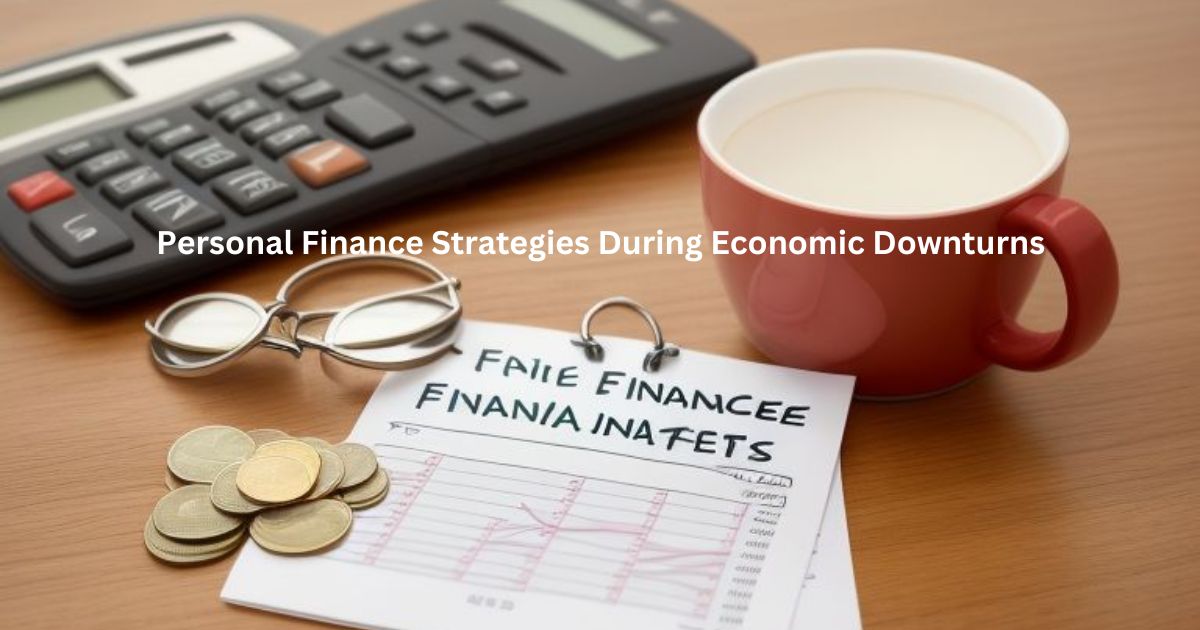In the midst of conflicting financial goals and eco-consciousness, they should not be mutually exclusive. If you practice eco-friendly practices in personal finance, then you not only save money but also attempt to save the earth. Let’s look at how small, practical steps add to big savings while reducing your carbon footprint.

Eco-Friendly Personal Finance
Eco-friendly personal finance is just aligning your financial habits with environmentally sustainable practices. Whether it’s cutting down on waste, making conscious spending choices, or investing in green energy, these efforts lead to a dual benefit: protecting your wallet and the environment.
Why It Matters
- Cost Savings: Eco-friendly habits make sure to reduce those unwanted expenses on energy, transportation, and non-essential purchases.
- Sustainability: It encourages promoting more sustainable business operations.
- Community Impact: Those who emulate your actions will be able to use sustainable ways, which will multiply the impact.
Discover: Financial Independence for Women: Take Charge of Your Financial Future
Practical Ideas to Save Money and Earth
1. Save Power
The easiest way to save money and cut down carbon emissions is by saving energy at home:
- Equip your home with energy-efficient appliances: Choose Energy Star-rated devices that consume less electricity.
- Use smart thermostats: That is, change the temperature in your home dependent on occupancy. Helps save on heating and cooling.
- Unplug Devices: No phantom energy. Electronics are unplugged when not being used.
2. Live Simply
Minimalism gets rid of clutter, impulse purchases, and waste.
- Buy only what you actually need: This eradicates impulse purchases. Make a shopping list before visiting a shop.
- Invest in Quality rather than Quantity: Products will last much longer, so you save money in the end.
- Repurpose and Recycle: Turn old things into new ones instead of disposing of them.

3. Green Transportation
Transportation is one of the highest carbon-emitting sectors but has cost-effective alternatives.
- Use Public Transport or Carpool: Reduce fuel consumption and carbon emissions by sharing rides.
- Ride or walk: This activity is free, good for the environment and healthy for you
- Opt to an electric or a hybrid car: Even if costly upfront, saving money in its fuel and maintenance expenses.
4. Eat More Green
Your food is eating hole directly into your pocketbook along with the Earth
- Find locally grown seasonal produce locally: They tend to cost less and contribute to smaller carbon footprints.
- Cut down on meat: Veggie meals are cheaper and have fewer environmental impacts.
- Reduce Food Waste: Plan your meals ahead, and store leftovers properly to avoid wasting unused portions of food.
5. Save Water, Save Money
Water conservation is one positive step toward saving utility dollars and protecting a precious resource.
- Fix Leaks Immediately: Dripping faucets waste gallons of water every day.
- Install Water-Saving Apparatus: Low-flow showerheads and dual-flush toilets are inexpensive but effective.
- Collect Rainwater: Use gathered rainwater for gardening or outdoor cleaning.

Green Financial Investments
Your financial decisions can extend beyond daily habits to investments that support sustainability.
Invest in Green Funds
Green funds focus on environmentally conscious companies, offering a way to grow your wealth while supporting eco-friendly initiatives.
Support Renewable Energy Projects
Consider installing solar panels or investing in community wind farms. These options may have upfront costs but offer long-term savings through lower utility bills.
Select Responsible Banks
Select banks and credit unions that are ethical, such as funding renewable energy and curbing investments in fossil fuel.
Advantages of Sustainable Living
Eco-friendly personal finance brings far more rewards than just saving.
- Health Benefits: Practices like cycling and organic food raise your body’s health standards.
- Financial Stability: That will also minimize reliance on fuels and electricity in your life. You will not become a victim of its rising prices.
- A Greener Future: You contribute to a clean world for future generations.
Common Barriers to Change
Most people are deterred from going green by costs or inconvenience. Here is how to overcome these:
- Initial Investment: Start small, such as using LED bulbs or reusable shopping bags, and gradually scale up.
- Time Constraints: Incorporate changes into your routine, like biking to work instead of driving.
- Awareness: Learn the long-term benefits of sustainable practices.
FAQs
How can I be waste-free at home?
We start by starting compost, using reusable pails, and buying products packed to have as little packaging as possible.
Is “going green” costly?
Actually, some of them might cost more in the short run, but they often pay back in the long run since they last longer and consume fewer materials.
What are some of the best eco-friendly investments?
Green funds, renewable energy projects, and investment in sustainable agriculture.
Can I save money through eating plant-based foods?
Yes, plant-based foods are mostly cheaper as well as an environmental expense.
How do I conserve water efficiently?
Fix leaks and, I use appliances that help save water, collects rainwater for non-potable purposes.
What is the role of recycling in saving money?
Recycling eliminates unnecessary purchases of new materials. It also earns money by deposit refund systems.
Conclusion
Saving money and saving the planet don’t necessarily have to be opposite. Following eco-friendly personal finance practices can indeed help you make good contact with your wallet while saving the world. Start small, stay consistent, and watch how it multiplies into big benefits for both your wallet and the world. To learn more about Sustainable Finance visit Green America.




